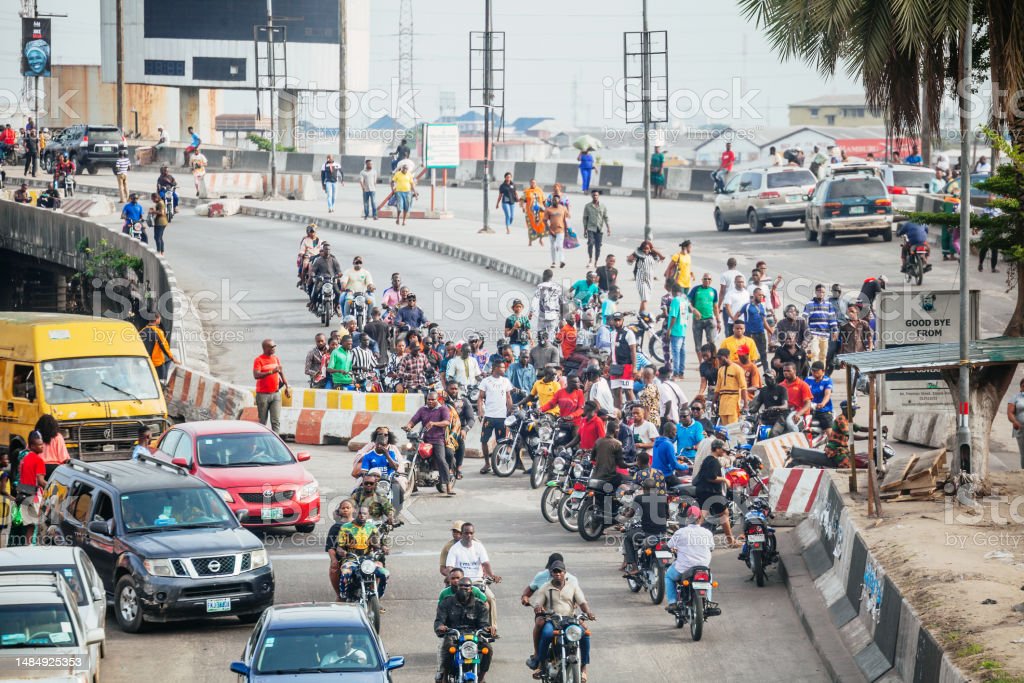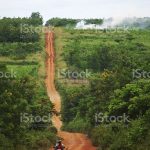Overview Of Motorcycles In Nigeria
Motorcycles, also known as “okadas” or “okadas,” play a significant role in Nigeria’s transportation system. They are widely used as a means of commuting, especially in urban and rural areas where road infrastructure may be inadequate or congested. Here’s an overview of motorcycles in Nigeria:
1. Importance of Motorcycles: Motorcycles serve as a vital mode of transportation due to their affordability, maneuverability, and ability to navigate through congested traffic. They provide a flexible and accessible option for people to travel short to medium distances quickly.
2. Commercial Motorcycle Operations: In Nigeria, motorcycles are extensively used for commercial purposes. Many individuals operate as motorcycle taxi riders, transporting passengers to their desired destinations for a fee. This has created employment opportunities for many Nigerians.
3. Motorcycle Manufacturers: Nigeria does not have a significant presence
Historical Background Of Motorcycles In Nigeria
The history of motorcycles in Nigeria is closely intertwined with the development of transportation and the automotive industry in the country. Motorcycles, also known as “okadas” in Nigeria, have played a significant role in shaping the transportation landscape, especially in urban areas.
The use of motorcycles as a means of transportation in Nigeria can be traced back to the early 20th century. However, it wasn’t until the 1960s and 1970s that motorcycles gained significant popularity and became a common sight on Nigerian roads. During this period, imported motorcycles, mainly from Japan, started to flood the Nigerian market.
The affordability, maneuverability, and fuel efficiency of motorcycles made them an attractive option for many Nigerians, particularly in congested urban areas where traffic congestion was a significant issue. Motorcycles provided a quick and convenient mode of transportation, allowing people to navigate through traffic more easily and reach their destinations faster.
In the 1980s and 1990s, the use of motorcycles in Nigeria witnessed a significant increase due to various factors. The economic downturn during this period led to a decline in public transportation services, such as buses, and many people turned to motorcycles as a more affordable alternative. Additionally, the rise of commercial motorcycle operations emerged as a source of employment for many Nigerians, as they started offering motorcycle taxi services to the public.
However, the rapid growth of motorcycles in Nigeria also led to various challenges and concerns. The lack of proper regulations and safety standards resulted in an increase in road accidents involving motorcycles. This prompted the Nigerian government and various state governments to introduce regulations and restrictions on motorcycle operations, particularly in major cities like Lagos, Abuja, and Kano.
In recent years, there have been efforts by the government to regulate and formalize the use of motorcycles in Nigeria. Some states have implemented laws requiring motorcycle riders to obtain licenses, wear helmets, and comply with traffic regulations. Additionally, there have been initiatives to promote the use of electric motorcycles as a more environmentally friendly and sustainable alternative.
Overall, motorcycles have played a significant role in Nigeria’s transportation system, providing mobility and employment opportunities. However, the challenges associated with their use, such as safety concerns and traffic congestion, continue to be addressed by the government and other stakeholders in the country.
Popular Motorcycle Brands In Nigeria
In Nigeria, several motorcycle brands are popular and widely used due to their durability, affordability, and availability of spare parts. Some of the popular motorcycle brands in Nigeria include:
1. Honda: Honda motorcycles are well-known for their reliability and fuel efficiency. Models like the Honda CG125, Honda Ace, and Honda CBR series are quite popular in Nigeria.
2. Yamaha: Yamaha motorcycles are also quite popular in Nigeria. They are known for their performance and durability. Models like the Yamaha YBR 125 and Yamaha FZ series are commonly seen on Nigerian roads.
3. Suzuki: Suzuki motorcycles are known for their affordability and robustness. Models like the Suzuki Gixxer, Suzuki Hayate, and Suzuki GSR are popular choices in Nigeria.
4. Bajaj: Bajaj motorcycles are known for their affordability and fuel efficiency. Bajaj Boxer and Bajaj Pulsar are among the popular models used by individuals and for commercial purposes in Nigeria.
5. TVS: TVS motorcycles have gained popularity in Nigeria due to their affordability and low maintenance costs. Models like the TVS Star, TVS Apache, and TVS Max are commonly used in the country.
6. Kawasaki: Kawasaki motorcycles are popular among motorcycle enthusiasts in Nigeria. The Kawasaki Ninja series and Kawasaki KSR are well-known models in the country.
7. Royal Enfield: Royal Enfield motorcycles are gaining popularity in Nigeria due to their classic design and ruggedness. Models like the Royal Enfield Bullet and Royal Enfield Classic are appreciated by motorcycle enthusiasts.
8. Piaggio: Piaggio motorcycles, particularly the Piaggio Vespa scooters, are popular for their style and elegance. They are often preferred by individuals looking for a stylish and comfortable ride.
These are just a few of the popular motorcycle brands in Nigeria. It’s important to note that availability and popularity can vary by region, and other brands not mentioned here may also have a significant presence in certain areas.
Challenges And Opportunities For Motorcycles In Nigeria
Motorcycles, also known as okadas, have become an integral part of transportation in Nigeria, particularly in urban areas where traffic congestion is a significant issue. While motorcycles offer several advantages, such as affordability and maneuverability in heavy traffic, they also pose challenges and opportunities for the country. Let’s explore them further:
Challenges:
1. Safety concerns: One of the primary challenges associated with motorcycles in Nigeria is the high rate of accidents and fatalities. Many riders and passengers do not adhere to safety regulations, such as wearing helmets or following traffic rules, leading to a significant number of accidents.
2. Traffic congestion: While motorcycles can navigate through congested traffic, they can also contribute to traffic congestion. In some cities, such as Lagos, the sheer number of motorcycles on the road has led to increased traffic congestion, making it difficult for other vehicles to move freely.
3. Lack of regulation: The motorcycle industry in Nigeria faces challenges related to regulation and enforcement. There is often a lack of proper licensing, registration, and regulation of riders and vehicles, which can lead to safety issues and unfair competition in the market.
4. Environmental impact: Motorcycles generally have higher emission rates compared to cars, contributing to air pollution. The widespread use of motorcycles in Nigeria can have adverse effects on air quality and public health if not properly regulated.
Opportunities:
1. Economic empowerment: The motorcycle industry in Nigeria provides employment opportunities for many individuals, particularly young people. It offers a means of livelihood for riders, mechanics, spare parts dealers, and other related businesses.
2. Last-mile connectivity: Motorcycles can serve as an efficient mode of transportation for short distances and connect areas with limited access to public transportation. They can bridge the gap in transportation services and improve connectivity in rural and underserved areas.
3. Delivery services: The rise of e-commerce platforms and the need for efficient last-mile delivery services present an opportunity for motorcycles. They can be utilized for package delivery, food delivery, and courier services, contributing to the growth of the logistics sector.
4. Technology integration: The advancement of technology, such as ride-hailing applications and digital payment systems, presents opportunities for the motorcycle industry. These innovations can improve safety, efficiency, and customer experience, making motorcycle transportation more accessible and convenient.
To realize the opportunities and address the challenges associated with motorcycles in Nigeria, it is crucial to strengthen regulation and enforcement, promote safety awareness campaigns, invest in infrastructure development, and encourage sustainable practices in the industry. This requires collaboration between the government, industry stakeholders, and society as a whole.
Government Regulations And policies On Motorcycles In Nigeria
The Nigerian government has implemented various regulations and policies regarding motorcycles, also known as Okadas, in the country. However, please note that regulations and policies are subject to change, so it’s essential to verify the most up-to-date information from official sources.
1. Ban in Major Cities: In some major cities across Nigeria, including Lagos, Abuja, and Port Harcourt, there have been restrictions and outright bans on motorcycles due to concerns over security, traffic congestion, and safety. These bans have been implemented to varying degrees, and enforcement can differ depending on the city.
2. Licensing and Registration: Motorcycles used for commercial purposes, such as Okadas, are typically required to be registered and obtain appropriate licenses. This ensures that riders meet specific criteria, including age restrictions, possession of a valid driver’s license, and proper vehicle documentation.
3. Safety Standards: Motorcycles must adhere to certain safety standards, such as having functional headlights, taillights, turn signals, mirrors, and reflectors. The government may conduct periodic checks to ensure compliance.
4. Traffic Laws and Regulations: Motorcyclists are generally expected to follow traffic laws and regulations, including speed limits, traffic signals, and lane discipline. Failure to comply can result in fines, penalties, or legal consequences.
5. Helmet Usage: Wearing helmets is mandatory for both riders and passengers on motorcycles in Nigeria. The helmets should meet specified safety standards and be securely fastened.
6. Commercial Motorcycle Operations: In areas where Okada operations are permitted, there may be regulations on the number of passengers allowed, designated pick-up and drop-off points, and specific routes that riders must follow.
7. Insurance: Commercial motorcycle operators are typically required to have appropriate insurance coverage to protect themselves, passengers, and third parties in the event of an accident.
It is important to note that these regulations and policies may vary across different states and local governments within Nigeria. Additionally, there may have been updates or changes to these regulations since my knowledge cutoff date. Therefore, it is advisable to consult the relevant Nigerian government agencies, such as the Federal Road Safety Corps (FRSC) or state-level transport authorities, for the most current and accurate information.








